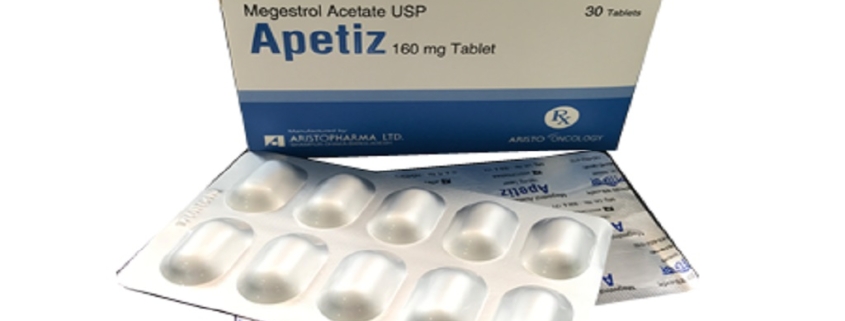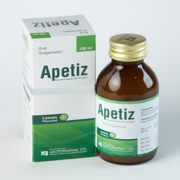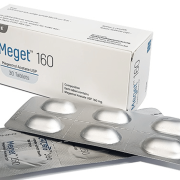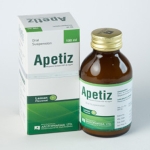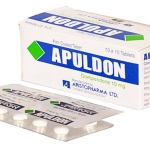Apetiz
Apetiz (Megestrol Acetate) tablet contains 160 mg of Megestrol Acetate which is a synthetic progestin.
Description
Megestrol Acetate causes weight gain by increasing the fat and body cell mass, and this weight gain is associated with increased appetite. Therefore this drug is used as an appetite stimulant for cancer patients suffering from anorexia, significant weight loss or cachexia.
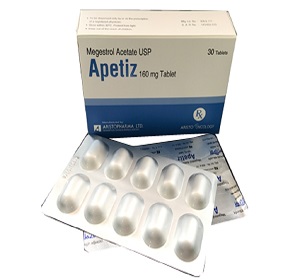
Presentation
Apetiz Tablet: Each film-coated tablet contains Megestrol Acetate USP 160 mg.
Indications
Apetiz tablet is used for the treatment of Anorexia-cachexia syndrome in cancer patients.
Dosage & Administration
Anorexia-cachexia syndrome: The recommended dose of Apetiz is 400 to 800 mg/day for at least two months and could be taken without regard to the meal.
Contrainidications
History of hypersensitivity to Megestrol Acetate or any component of the formulation and in case of known or suspected pregnancy.
Warning & Precautions
History of thromboembolic disease. Monitor for signs/symptoms of adrenal insufficiency; consider empiric therapy if occurs. Diabetes, renal impairment, elderly, fetal toxicity, obtain (-) pregnancy test prior to initiation. Advise females of reproductive potential to use effective contraception during therapy and for nursing mothers it is not recommended.
Side effects
Some common adverse events which occurred in at least 5% of patients are diarrhea, impotence, rash, flatulence, hypertension, asthenia, insomnia, nausea, anemia, fever, decreased libido, dyspepsia, hyperglycemia, headache, pain, vomiting, pneumonia & urinary frequency. Some other adverse events also occurred in 1% to 3% of all patients are abdominal pain, chest pain, infection, moniliasis and sarcoma, cardiomyopathy and palpitation, constipation, dry mouth, hepatomegaly, increased salivation and oral moniliasis, leukopenia, increased LDH, edema & peripheral edema, paresthesia, confusion, convulsion, depression, neuropathy, hyperesthesia & abnormal thinking, dyspnea, cough, pharyngitis & lung disorder, alopecia, herpes, pruritus, vesiculobullous rash, sweating and skin disorder, amblyopia, albuminuria, urinary incontinence, urinary tract infection and gynecomastia. A rarely encountered side effect of prolonged administration of Megestrol Acetate is urticaria.
Drug interaction
Pharmacokinetic studies show that there is no significant alteration in pharmacokinetic parameters of Zidovudine or Rifabutin to warrant dosage
adjustment when Megestrol Acetate is administered with these drugs.
Use in special groups
Use in Pregnancy & Lactation: No adequate animal teratology information is available at clinically relevant doses. Because of the potential for adverse effects on the newborn, nursing should be discontinued if Megestrol Acetate is required.
Use In Children & Adolescents (<18 Years Of Age): Safety and effectiveness in pediatric patients have not been established. Megestrol Acetate is not recommended for use in children.
Geriatric Use (>65 Years Of Age): In general, dose selection for an elderly patient should be cautious, usually starting at the low end of the dosing range.
Packing
Storage:
Apetiz Tablet: Store within 30°C. Protect from light.
Presentation:
Apetiz Tablet: Each box contains 10 or 30 tablets in alu-alu blister pack.

